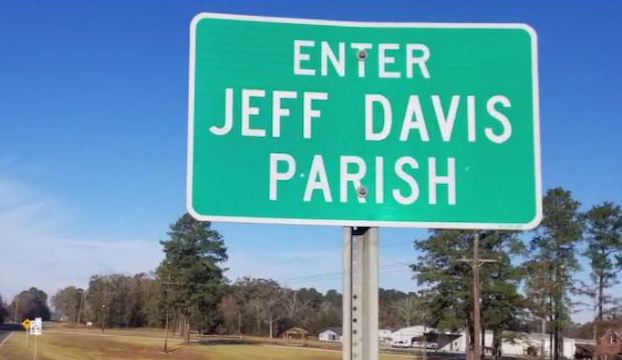Keystone XL still not veto proof: Landrieu
Published 7:02 am Saturday, November 1, 2014
If U.S. Sen. Mary Landrieu, D-La., wants to make Senate legislation on the Keystone XL pipeline veto proof, she’ll need a few more votes to do it.
During a campaign stop in Lake Charles on Friday, Landrieu said she almost has the 60 votes needed to pass the Senate’s Keystone legislation.
“I’ve built the Democratic coalition up from three to 11 Democrats,” she said. “So we’ve got almost the number we need.”
Sixty votes in the Senate will pass the legislation without the threat of a filibuster from the bill’s opponents. If President Barack Obama vetoes the legislation, however, it would require a two-thirds majority vote in both houses of Congress — 67 in the Senate and 287 in the House — to override the veto.
When the American Press asked Landrieu what her plans were for getting the votes to ensure a two-thirds majority vote in the Senate, she said she did not think the country would ever see a 67-vote majority from Republicans or Democrats “in our lifetime.”
“Let me inform everybody that the country is very polarized,” she said. “We need to send senators back who can work with both parties to break gridlock and stop the polarization and continue to fight for what’s in the best interests of Louisiana.”
Congress has overridden less than 10 percent of all presidential vetoes.
U.S. Rep. Bill Cassidy, R-Baton Rouge and one of two Republicans challenging Landrieu for her Senate seat, said that if the GOP can gain about 10 seats in the Senate on Tuesday, that would add to the 10 to 14 Democrats who have previously voted for the Keystone XL pipeline.
If that happens, he said, there could be as many as 65 senators who have either already supported Keystone or ran on a campaign to see the project approved.
“Now 65 is not very far from 67,” Cassidy said. “There’s going to be a lot of Senators running for re-election in states in which the majority of the people they will be facing in two years absolutely want the Keystone XL pipeline to be built. Ohio is one example.”
Cassidy added, however, that Keystone will not pass the Senate as long as U.S. Sen. Harry Reid, D-Nev., remains majority leader.
“Harry Reid will not allow any pro-gas legislation or resolutions to come to the floor of the United States Senate,” Cassidy said. “Sen. Reid hates fossil fuel. He thinks it’s evil and part of the problem. A vote for him as majority leader is a vote against oil and gas jobs.”
The pipeline is now in the hands of the Nebraska Supreme Court, which is reviewing an appeal from landowners who are against the line’s route through the state.
Landrieu, head of the Senate Energy Committee, said the Nebraska case has made several senators “a little hesitant” to support Keystone.
“But that’s going to be over soon, so we will pick up a few more votes there,” she said. “It’s just a matter of continuing the work.”
The 36-inch pipeline would carry oil from Alberta, Canada, south through the Midwest to refineries in Houston and Port Arthur, Texas.
The U.S. State Department has said the pipeline’s construction and completion would create 42,000 direct and indirect jobs.
Obama, however, has said the pipeline would not be in the country’s interest if it contributes to rising carbon dioxide emissions that are related to climate change.
Landrieu released a statement Friday afternoon that said in part that the president “has struggled” in Louisiana because his energy polices “are not in the line with the people of Louisiana.”
“We are a pro-drilling, pro-oil, gas state,” the statement reads. “The offshore moratorium was extremely unpopular and, in my opinion, wholly unwarranted. It made a lot of people angry and put many businesses at risk.”
Laris Karklis





